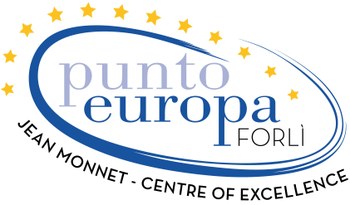Migration in and from Europe

Migration is the policy that links domestic and foreign policy and impacts both on the relations among member states and on the relation that the EU has with neighbouring countries. It is an area in which the very credibility of the EU has been put under strain both internally and internationally and an area of major concern of the EU as it requests to strike a balance between the legitimate need to control immigration flows and that provide security on the one side, and respect basic human rights on the other side. The aim here is to understand the European migration phenomenon by adopting a truly interdisciplinary approach, concerning especially history and law perspectives.
From an historical point of view, the research will focus on European emigration after World War II and the diverse impact of immigration on Europe since it became a large receiving continent. Francesca Fauri will underline the role of micro economic factors in the decision to leave, the central role of family strategies and networks in determining international routes and the importance of cross-cultural migration. In the 1950s and early 1960s the largest group of European migrants, ready to move for a job to Europe was made of Italians. Though strictly governed by bilateral contracts, it was the first immigration challenge many EU countries had to face in the post-war period, but as it died out, increasing influxes of immigrant groups of diverse ethnic origin started to enter the European borders. The growth of immigrant inflows in the last three decades has caused relevant changes in the social, cultural and economical structure of many receiving countries and has raised questions on the definition of national identity, the possibility of assimilation and the importance of education. In the second part of the research, the author will deal with the path of economic integration of immigrants in European societies focusing on immigrant small business. Structure, organization and finance of the immigrant business will be evaluated and studied, trying to highlight the connections with the financing and business facilities in the country of origin and the possible role of a "business chain". Finally, the weight of irregular migration, tax evasion, long working hours on the economic performance of the immigrant business will be studied through a few case studies.
From a legal standpoint, the research – after an analysis of the EU legal framework on migration – will point out the importance of mobility inside the EU. In the actual situation, third country nationals have no the opportunity to move freely inside the EU, except for touristic reasons in the Schengen area and for a maximum of three months.
In effect, the competence on the visa for labour reasons is managed by the Member States with the exception of the high qualified workers, according to the blue card directive. The aim of the project is to underline the importance of a new model of mobility inside the EU, for TCNs workers. The role of the private sector will be an important and crucial asset on the development of new and different EU policies on the mobility, also according the new approach that is now developing by the Global Forum on Migration and Development. The importance of students’ mobility and for traineeship, also in connection with labour and skipps will be investigated as well.
Particular attention will be given to the ‘rights based governance’ of migration and the role that the EU will have with third countries in managing the migrations. The protection of migrant rights, the fighting against trafficking of HR and the protection of people as refugees are important issues that has to characterize the intervention of the EU and of the member states also in the assistance of developing countries.